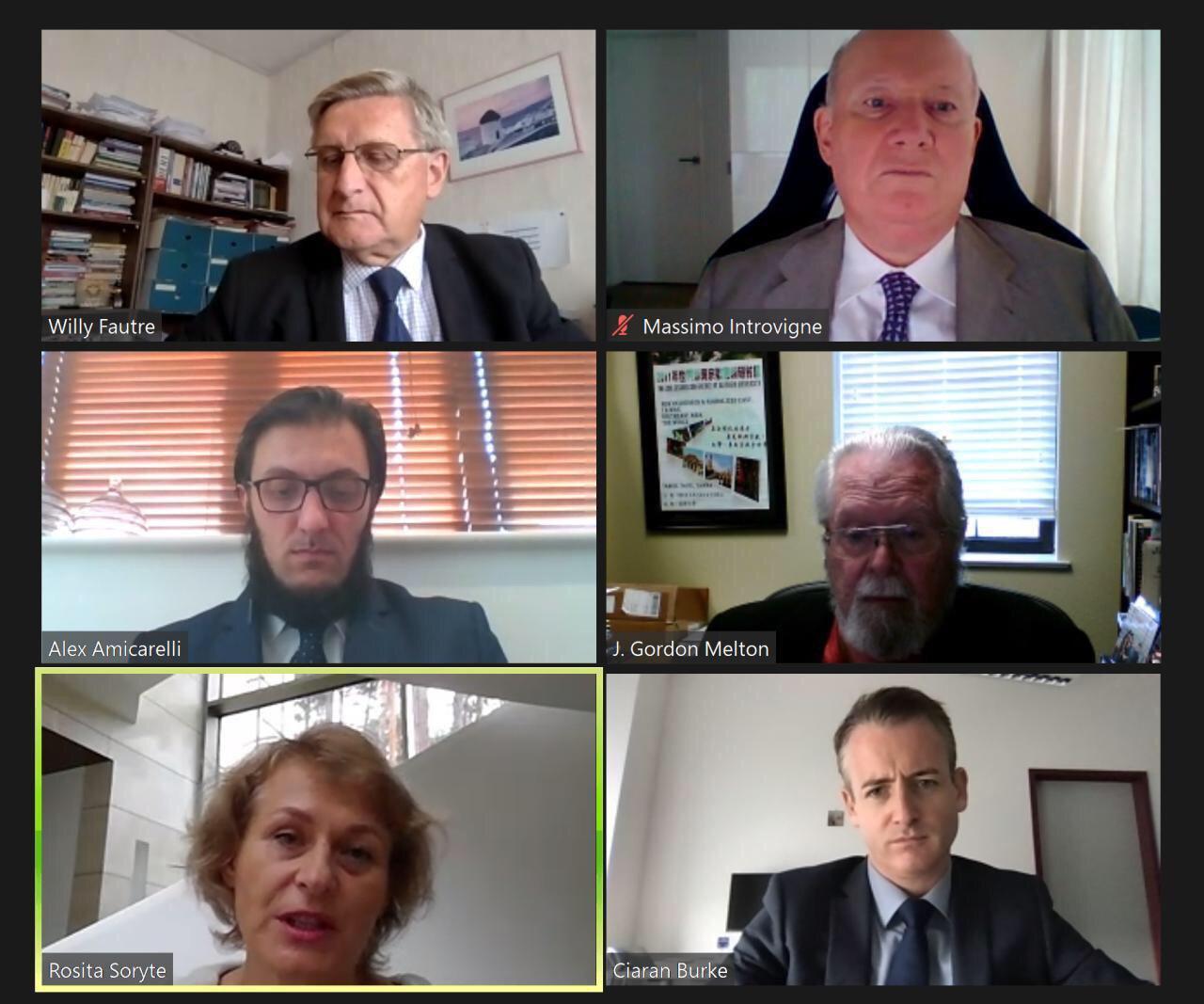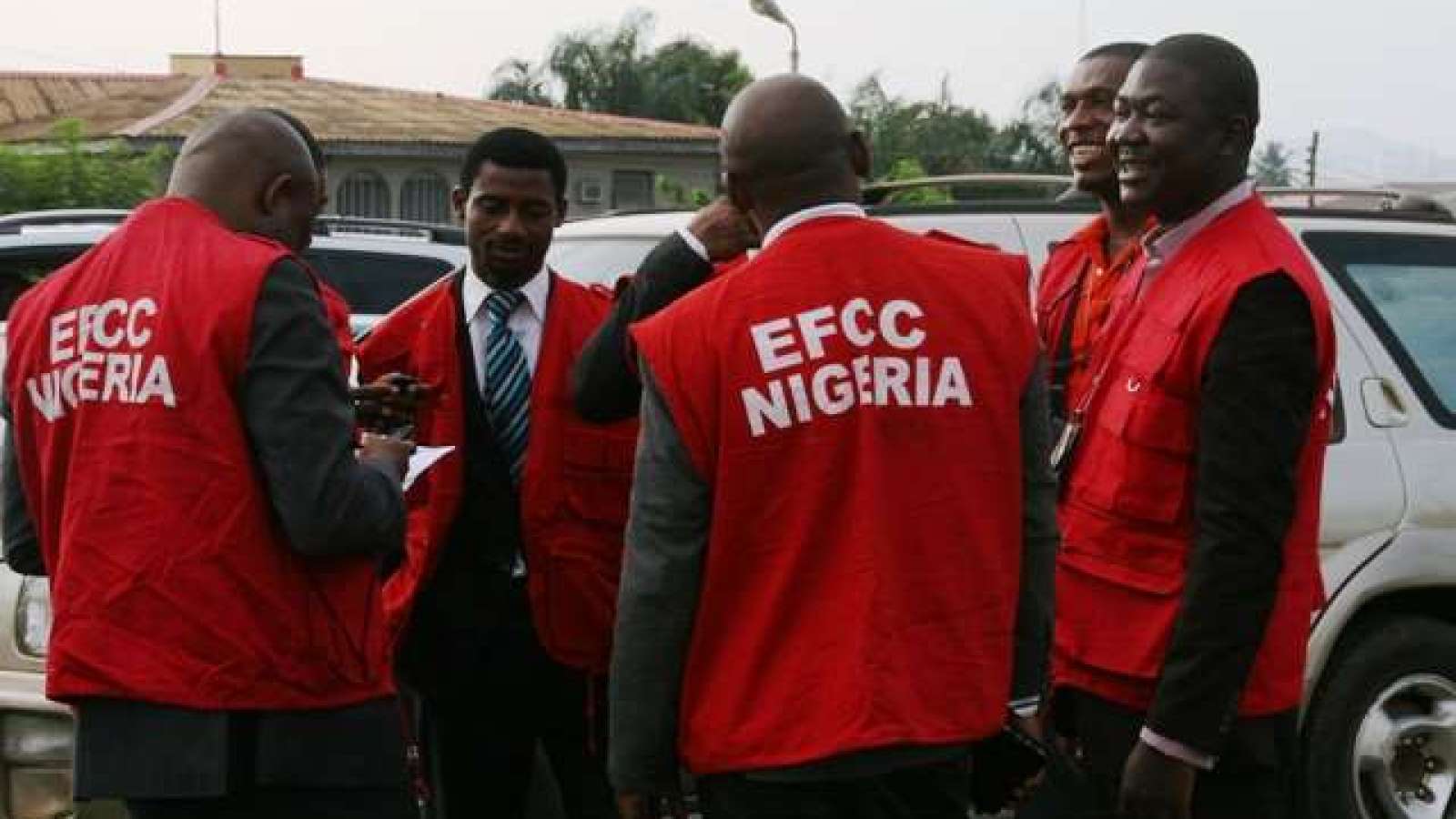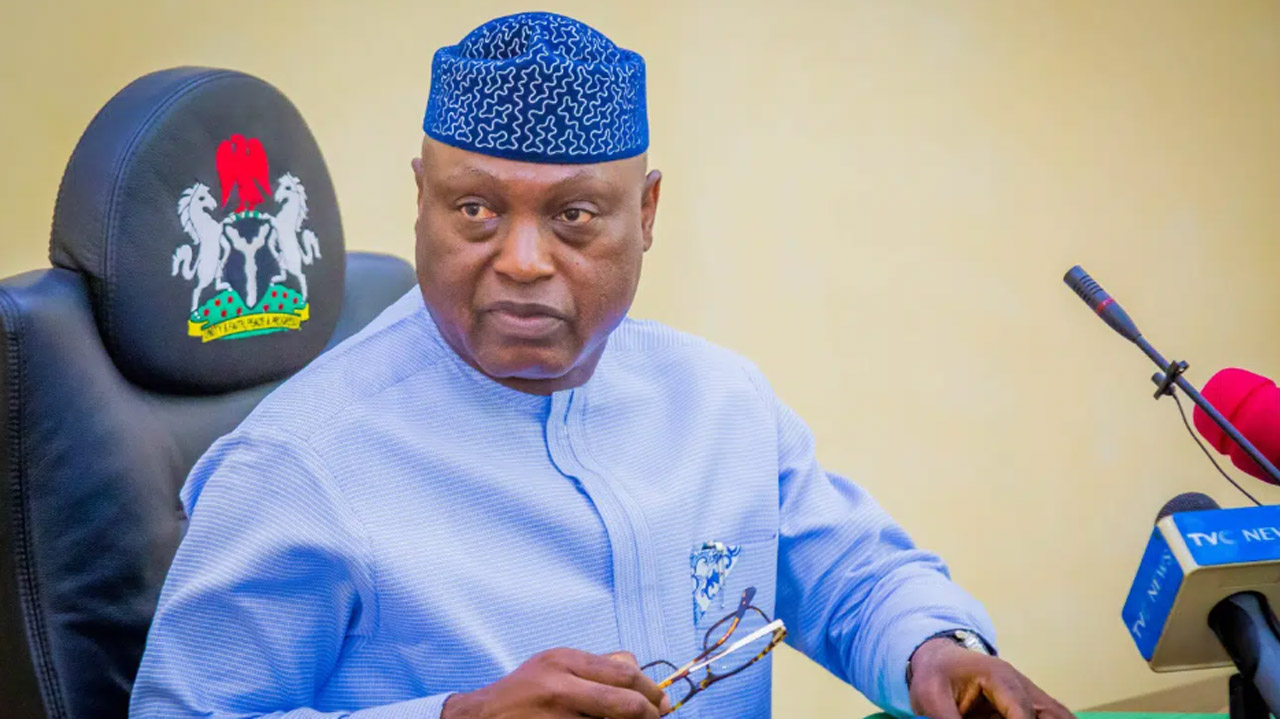Justice Emeka Nwite of the Federal High Court Abuja, on Thursday, adjourned to April 23, the suit instituted by the Economic and Financial Crimes Commission (EFCC) against the immediate past Governor of Kogi State, Mr. Yahaya Bello.
The adjournment is for substituted service and possible arraignment of Bello for alleged N84billion money laundering.
At the sitting, counsel for the EFCC, Kemi Phinro, told the court that Bello was absent from court for his arraignment because he was being protected by someone with immunity.
Phinro complained that the former governor was whisked out of his Abuja residence by the same person with immunity.
Phinro said the anti-graft agency might seek the help of the military to fish him out to come face his arraignment.
Responding to this submission, Yahaya Bello through his counsel, Abdulwahab Muhammad, told the court that there is an order of the court restraining the EFCC from arresting or arraigning him.
Muhammad said a Kogi State High Court had on February 9, 2024 restrained the EFCC from arresting or arraigning the former governor.
He added that the EFCC has appealed the ruling and the Court of Appeal was yet to decide on the matter.
He pointed out that the action of the EFCC was unconstitutional and the court lacked jurisdiction to entertain any charge from the EFCC.
Counsel for the EFCC, however, disagreed with the submission of the counsel to Bello.
The EFCC counsel held that the ruling in the substantive matter on the suit was delivered on March 17, 2024 by the Kogi State High Court.
He cleared the air that the court in its ruling held that for the former governor to be arrested or arraigned, the EFCC must first seek leave from the court to do so.
He said it was in line with that judgment that the EFCC, through an exparte application, filed for the order seeking the arrest of the former governor which was granted by the court.
Counsel for Yahaya Bello, however, insisted before the court that the order for the ex-governor’s arrest was made out of jurisdiction. He said the former governor is not a fugitive, but relying on the order of the Kogi State High Court to take protection.
On Wednesday, EFCC operatives stormed Bello’s residence in the Wuse area of Abuja and spent most part of the day attempting to arrest the former governor whom the Commission later confirmed was whisked away by his successor.
The EFCC subsequently warned members of the public that it is a criminal offence to obstruct officers of the Commission from carrying out their lawful duties.
The Commission’s spokesperson said that Section 38(2)(a)(b) of the EFCC Establishment Act makes it an offence to prevent officers of the Commission from carrying out their lawful duties.
According to him, culprits risk a jail term of not less than five years.
“On several occasions, operatives of the Commission have had to exercise utmost restraint in the face of such provocation to avoid a breakdown of law and order.
“Regrettably, such disposition is being construed as a sign of weakness.
“The Commission, therefore, warns that it will henceforth not tolerate any attempt by any person or organisation to obstruct its operation as such will be met with appropriate punitive actions,” the statement added.

 News6 years ago
News6 years ago
 Featured6 years ago
Featured6 years ago
 Boss Picks6 years ago
Boss Picks6 years ago
 Headline6 years ago
Headline6 years ago
 Headline6 years ago
Headline6 years ago
 Headline5 years ago
Headline5 years ago
 Headline6 years ago
Headline6 years ago
 Headline6 years ago
Headline6 years ago















